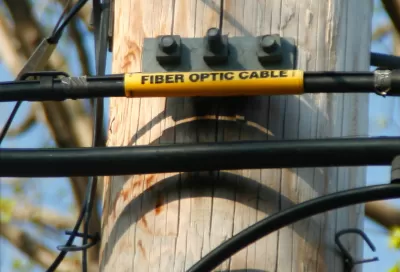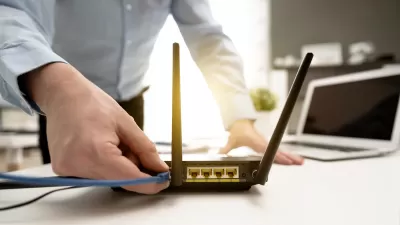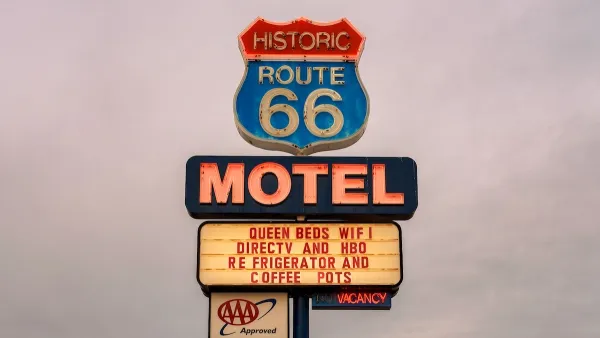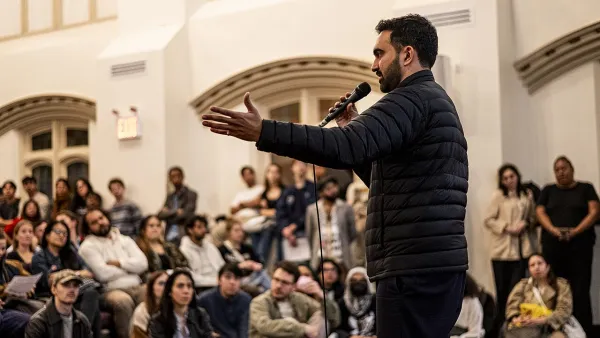Any new affordable housing projects in NYC that receive city money must wire the building for high-speed internet and provide broadband at no cost to the tenants, new city rules say.

During the presidential campaign last summer, Joe Biden released a “Plan for Rural America” calling for an investment of $20 billion to expand broadband internet access in rural communities, where, the plan noted, residents are 10 times more likely than urbanites to live without a high-speed internet connection. But even in America’s biggest cities, broadband access is not universal. Nor is it equitably distributed.
In New York, according to a 2018 report, around 30 percent of residents had no broadband access at home, with steep disparities along income and racial lines. More than half of the lowest-income residents lacked broadband access, according to the report. A third of Black and Hispanic residents, 32% and 33% respectively, lacked broadband at home, compared with 21% for white residents and 23% for Asian residents, according to the report. The COVID-19 pandemic of the last year and subsequent virtual schooling and Zoom meetings only heightened the urgency of providing better internet access for everyone; a report from Deutsche Bank last year found that the racial disparities within the digital divide could worsen over time, leaving Black and Hispanic people especially ill-prepared for future jobs, according to CNBC.
Last year, as Next City reported, New York released an Internet Master Plan aimed at expanding broadband access more equitably. Now, the city is making broadband access a necessary component of new affordable-housing projects that use city funds. In March, the New York City Department of Housing Preservation and Development adopted a new set of Design Guidelines meant to “ensure newly constructed buildings promote equity, health, and sustainability,” the Department said in a press release. According to the new guidelines, whenever feasible, all new affordable housing that use city funds must be wired for high-speed internet and provide it to all tenants at no cost to them.
FULL STORY: New NYC Affordable Housing Must Come With Internet Service, City Says

Planetizen Federal Action Tracker
A weekly monitor of how Trump’s orders and actions are impacting planners and planning in America.

Maui's Vacation Rental Debate Turns Ugly
Verbal attacks, misinformation campaigns and fistfights plague a high-stakes debate to convert thousands of vacation rentals into long-term housing.

San Francisco Suspends Traffic Calming Amidst Record Deaths
Citing “a challenging fiscal landscape,” the city will cease the program on the heels of 42 traffic deaths, including 24 pedestrians.

Amtrak Rolls Out New Orleans to Alabama “Mardi Gras” Train
The new service will operate morning and evening departures between Mobile and New Orleans.

The Subversive Car-Free Guide to Trump's Great American Road Trip
Car-free ways to access Chicagoland’s best tourist attractions.

San Antonio and Austin are Fusing Into one Massive Megaregion
The region spanning the two central Texas cities is growing fast, posing challenges for local infrastructure and water supplies.
Urban Design for Planners 1: Software Tools
This six-course series explores essential urban design concepts using open source software and equips planners with the tools they need to participate fully in the urban design process.
Planning for Universal Design
Learn the tools for implementing Universal Design in planning regulations.
Heyer Gruel & Associates PA
JM Goldson LLC
Custer County Colorado
City of Camden Redevelopment Agency
City of Astoria
Transportation Research & Education Center (TREC) at Portland State University
Jefferson Parish Government
Camden Redevelopment Agency
City of Claremont





























